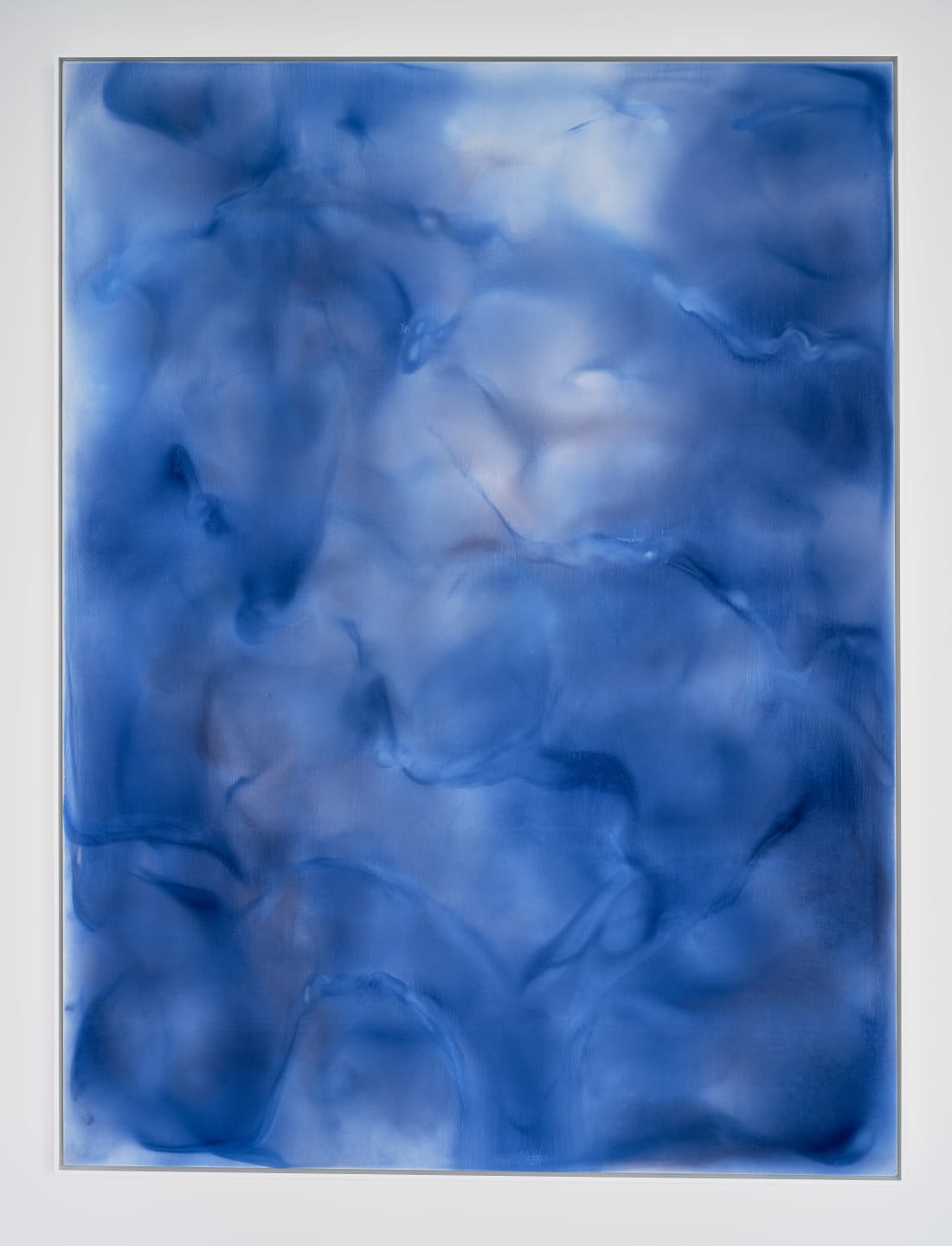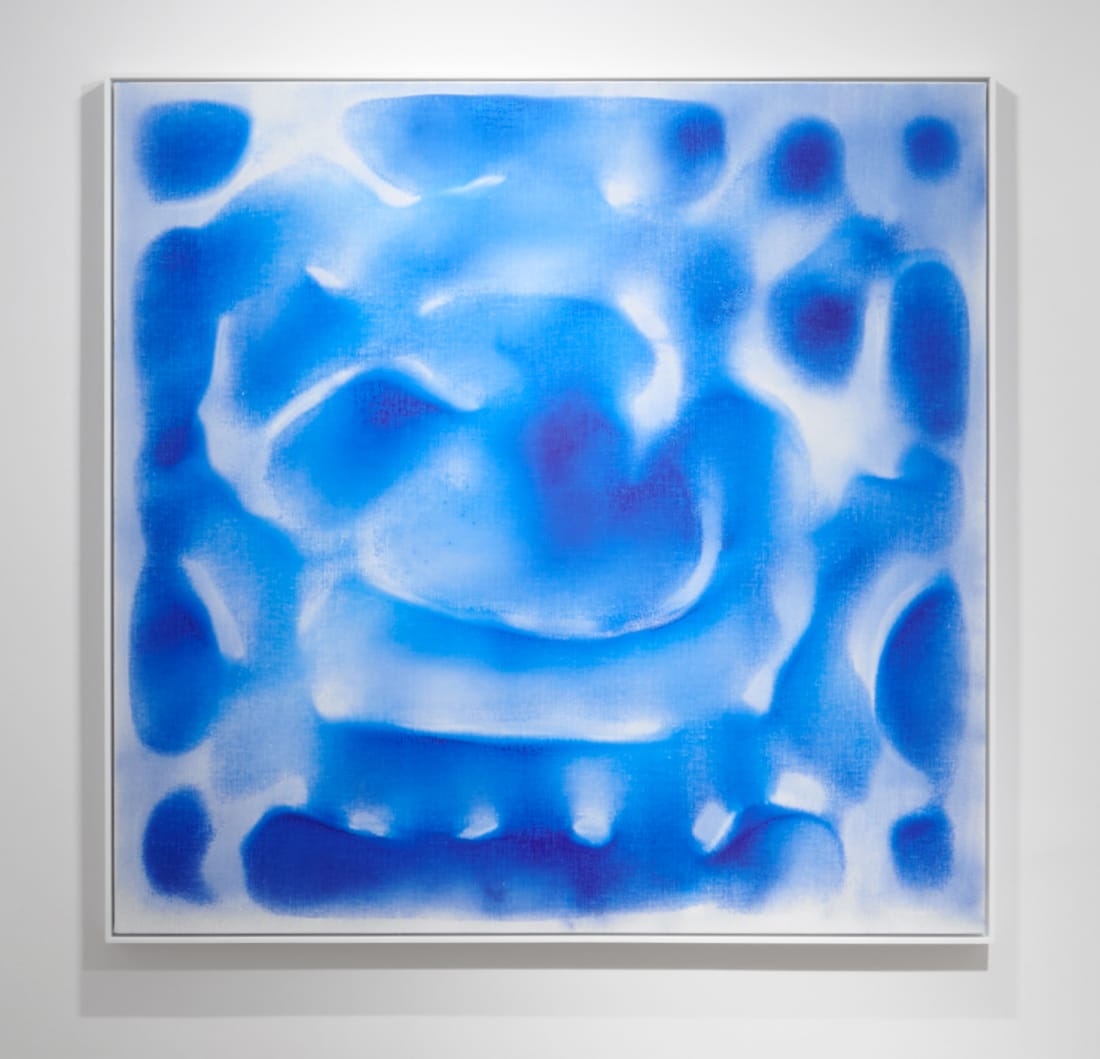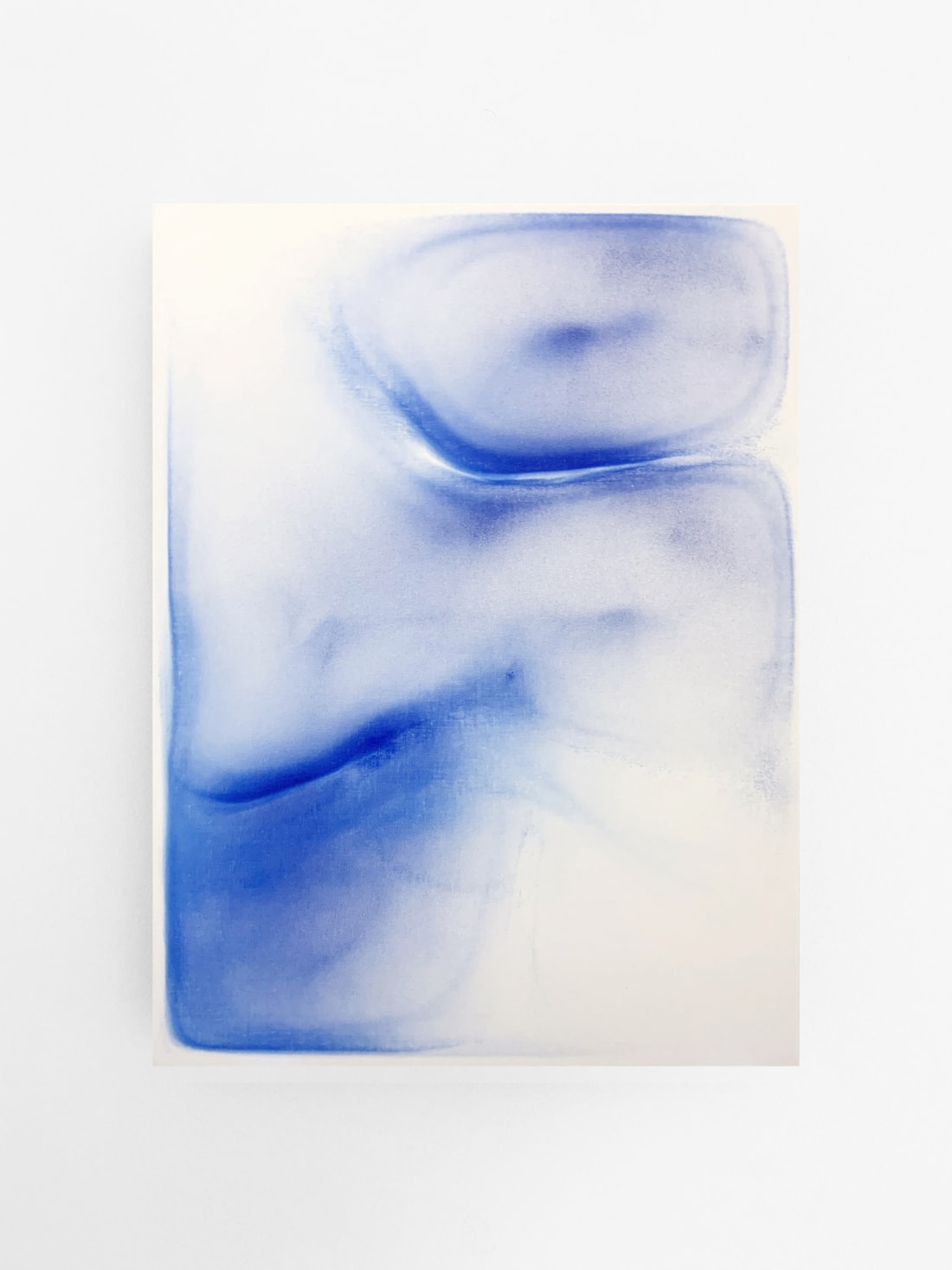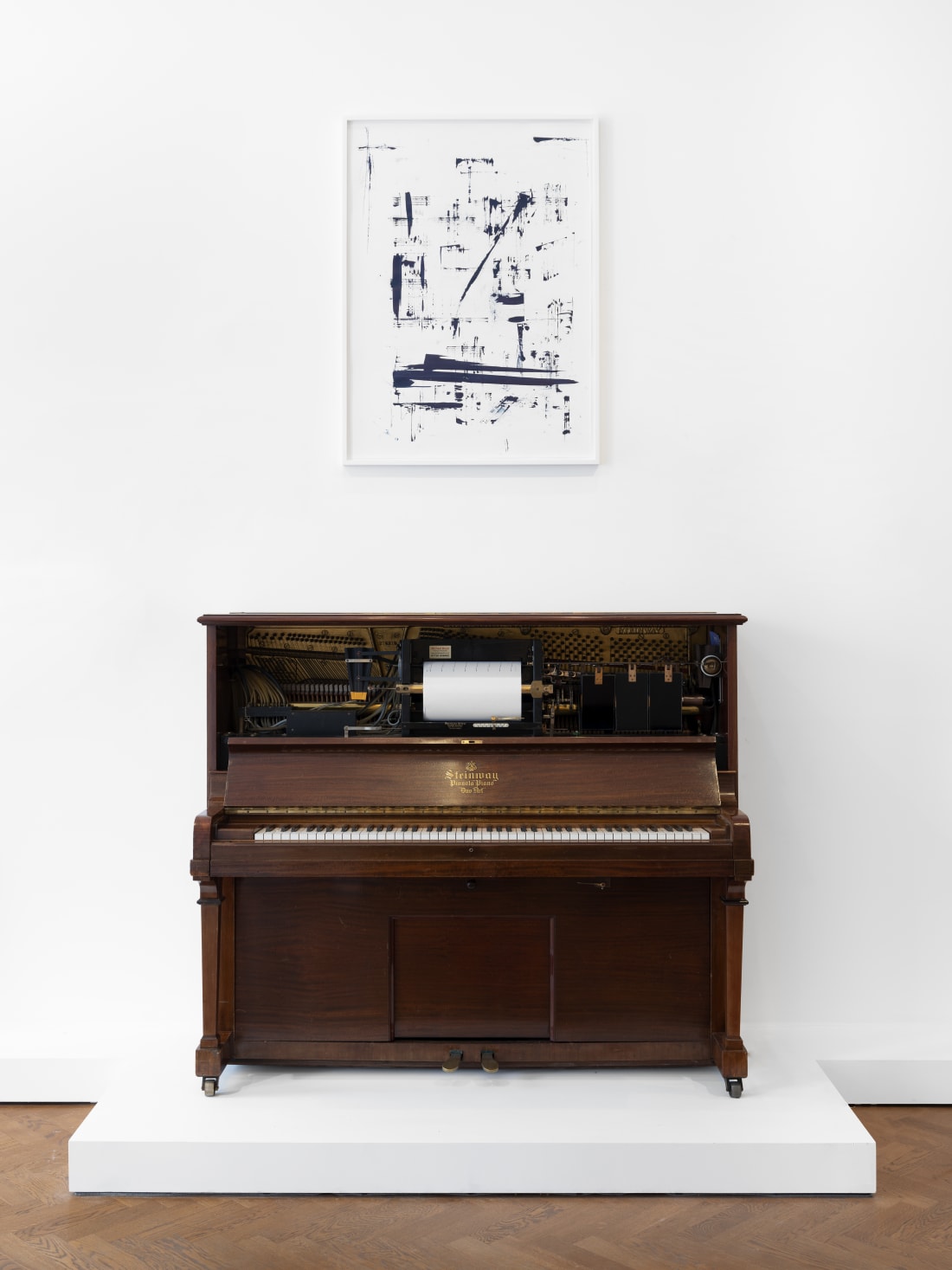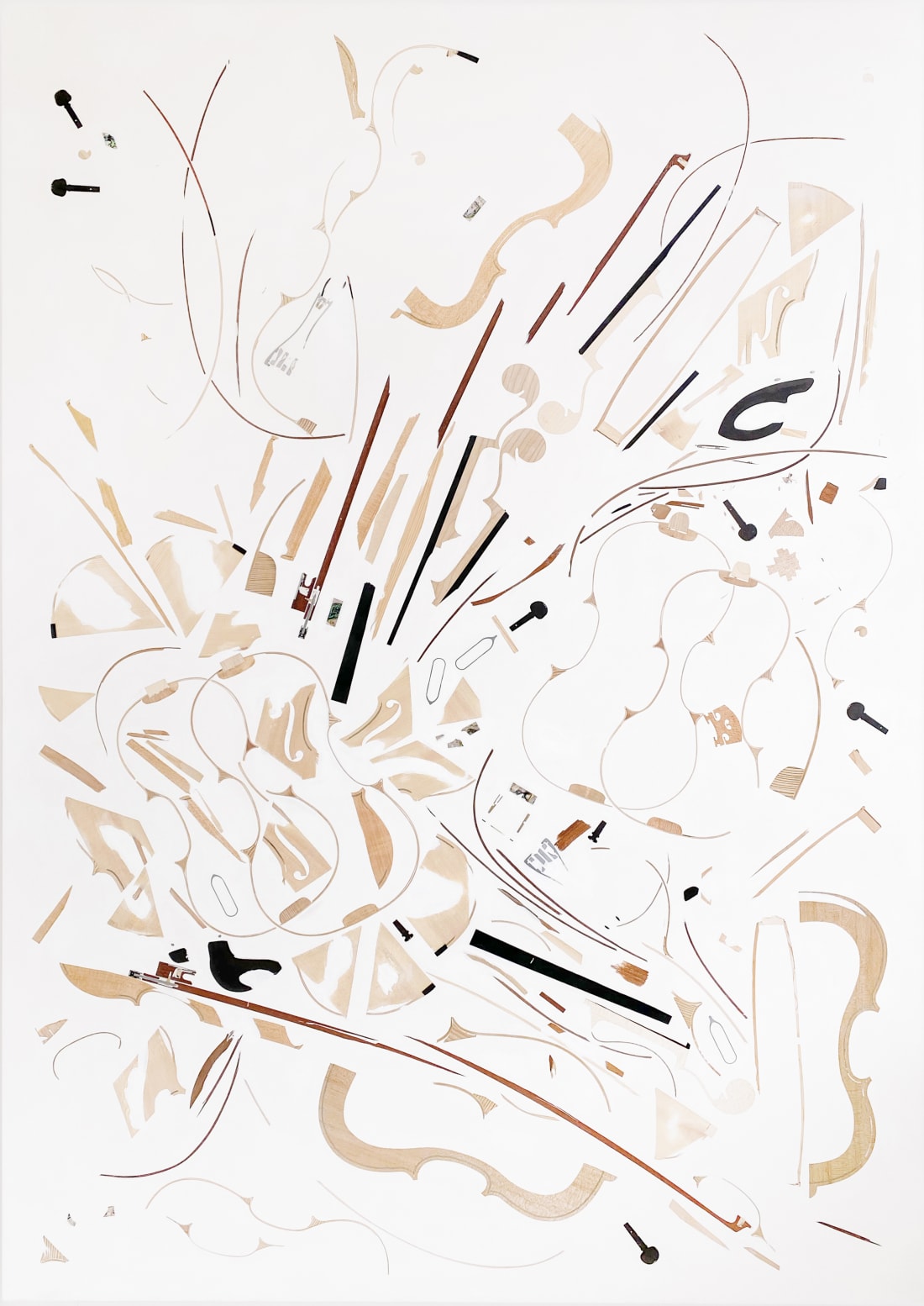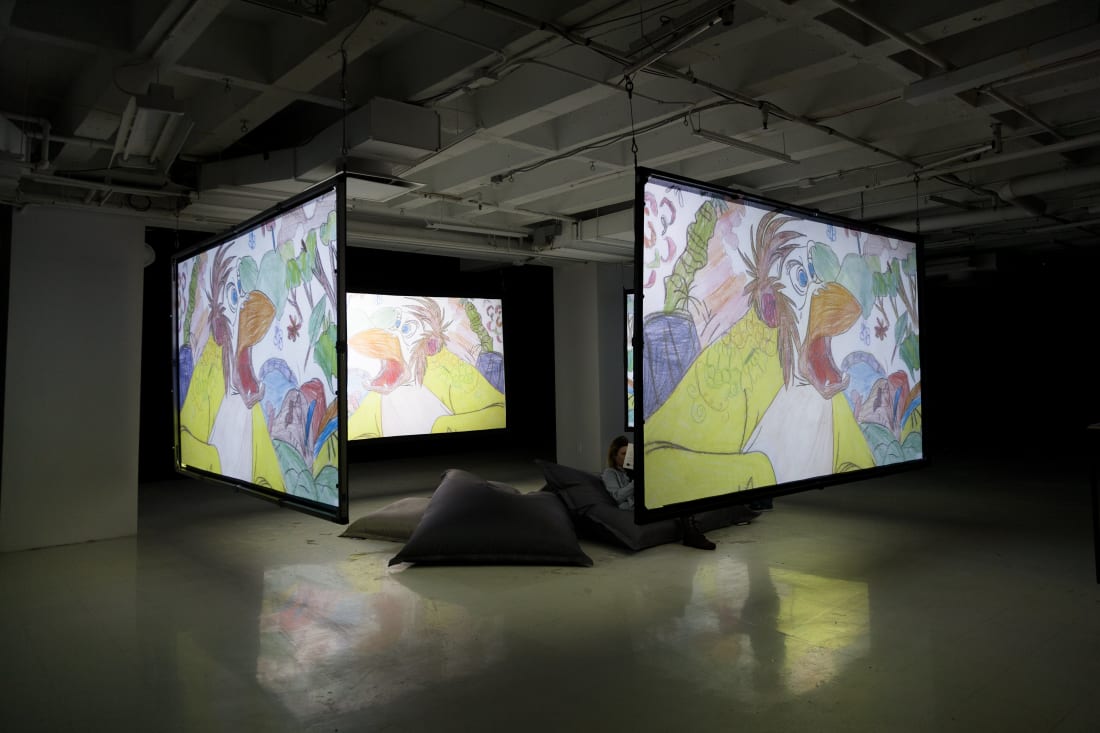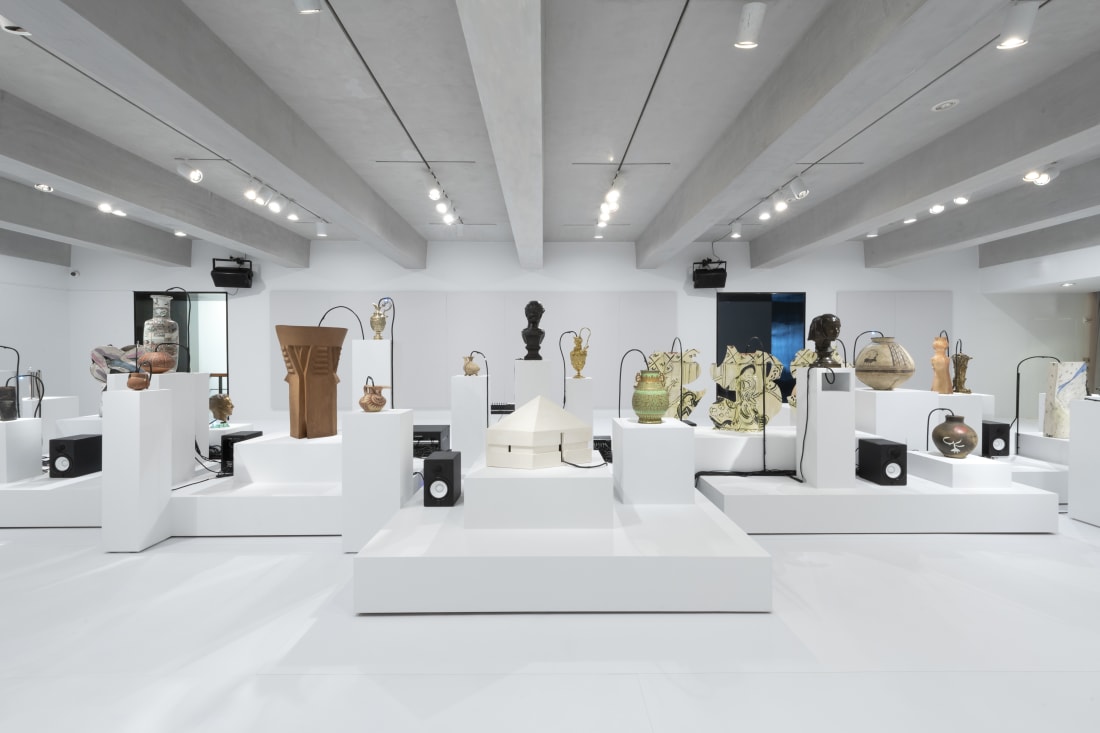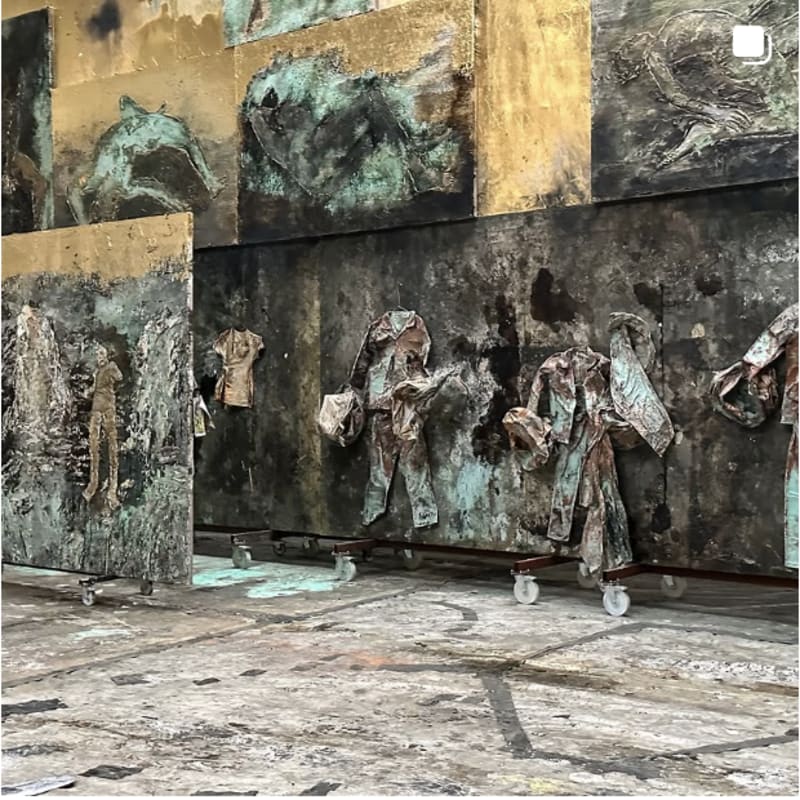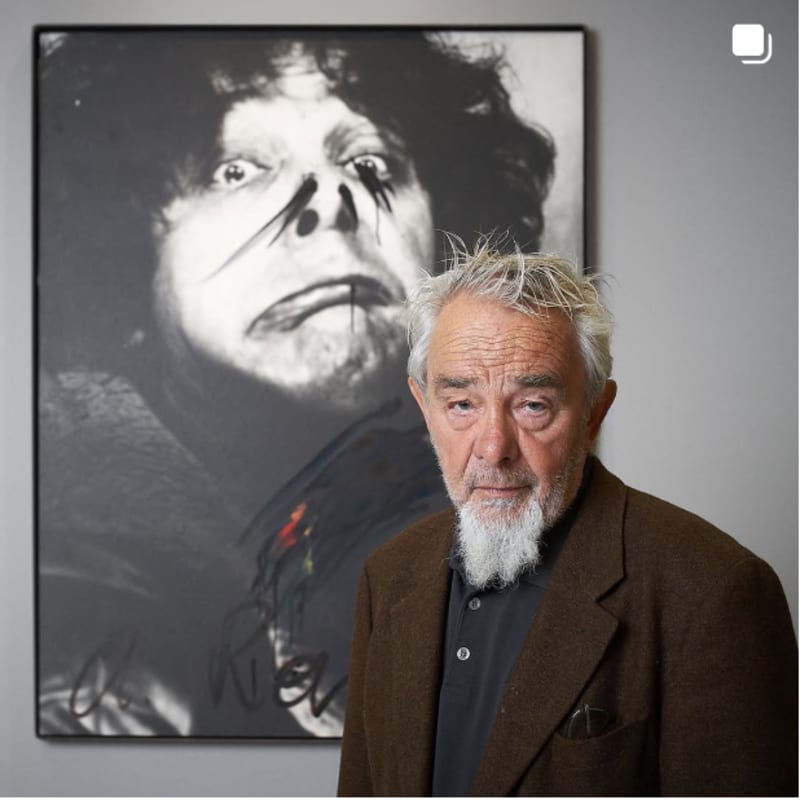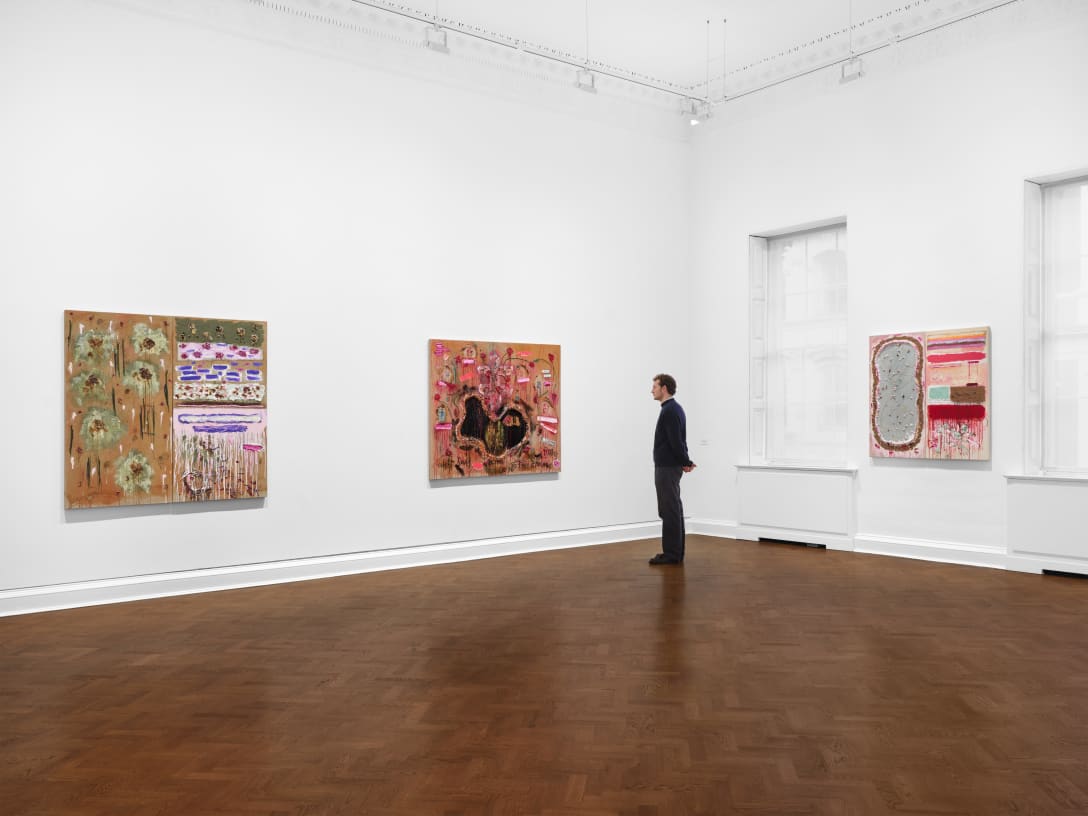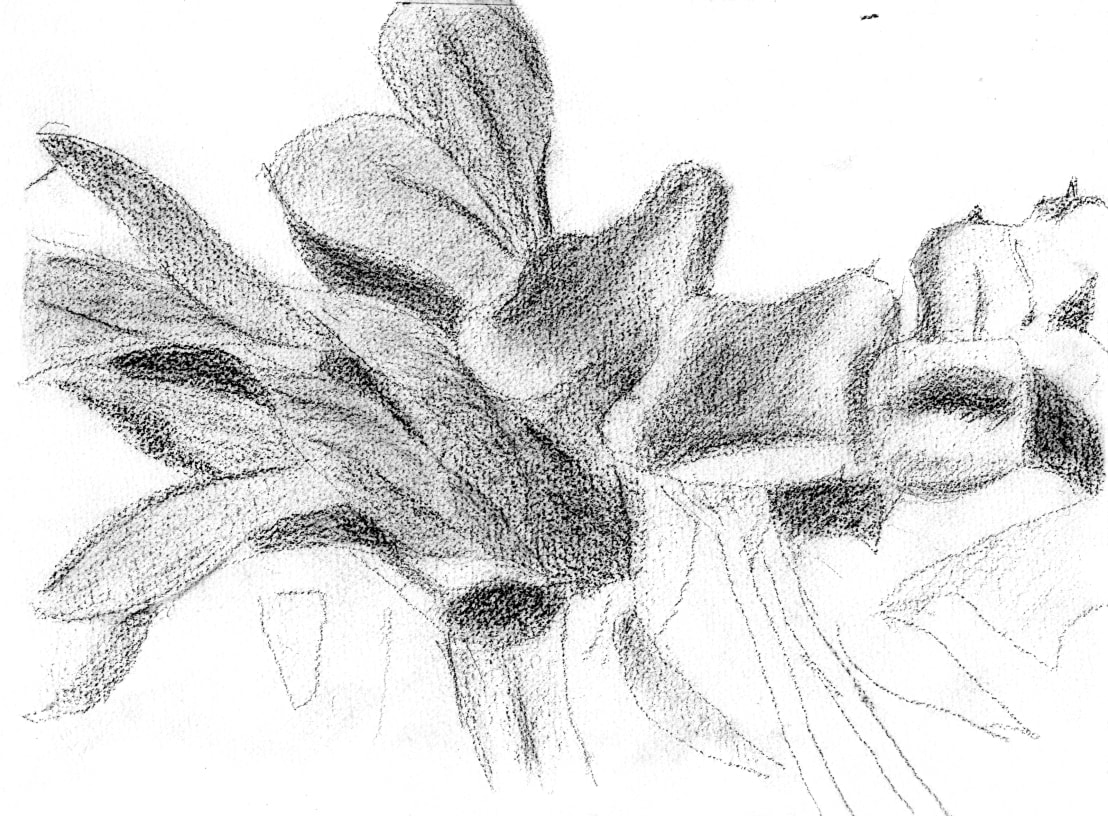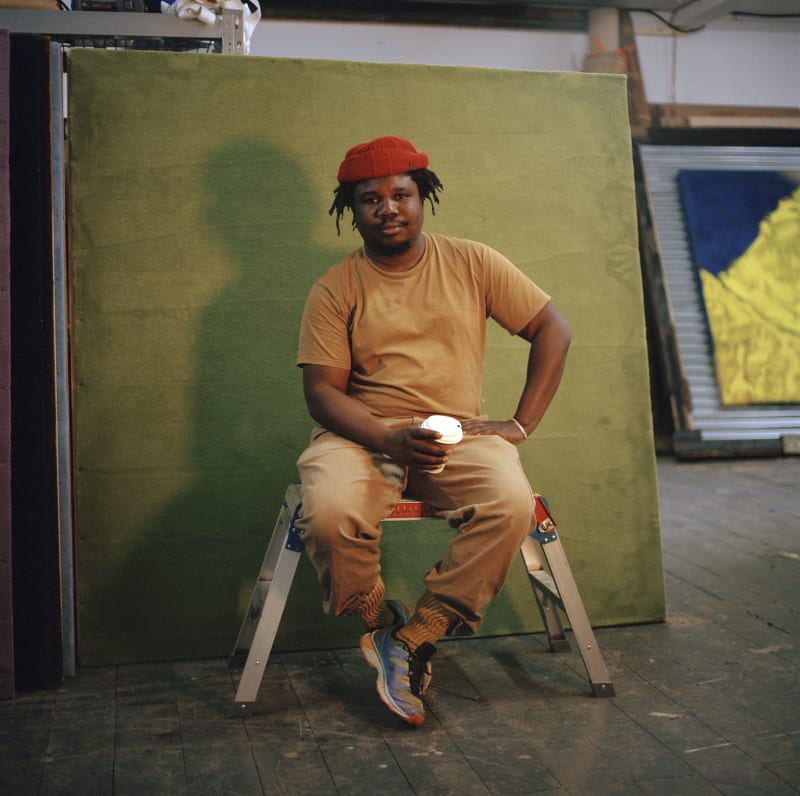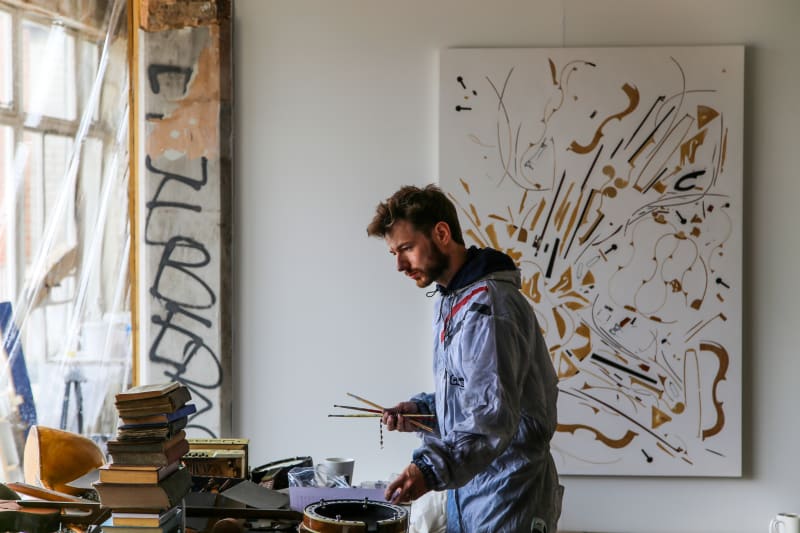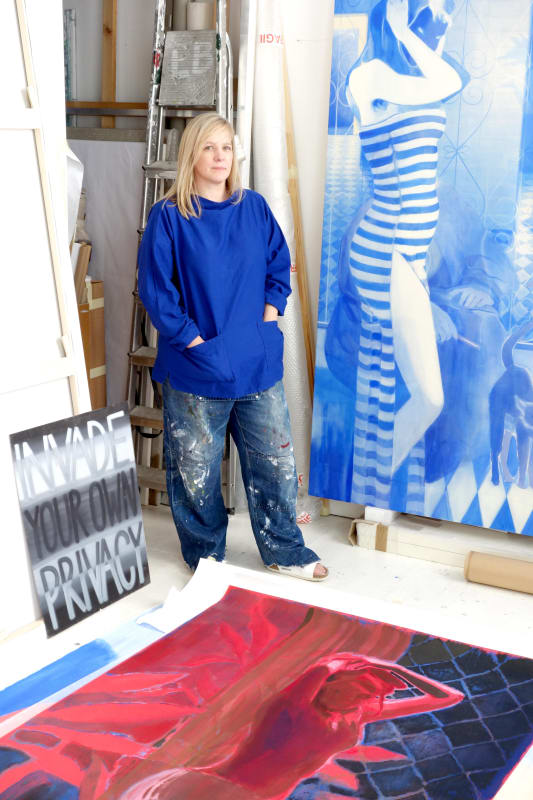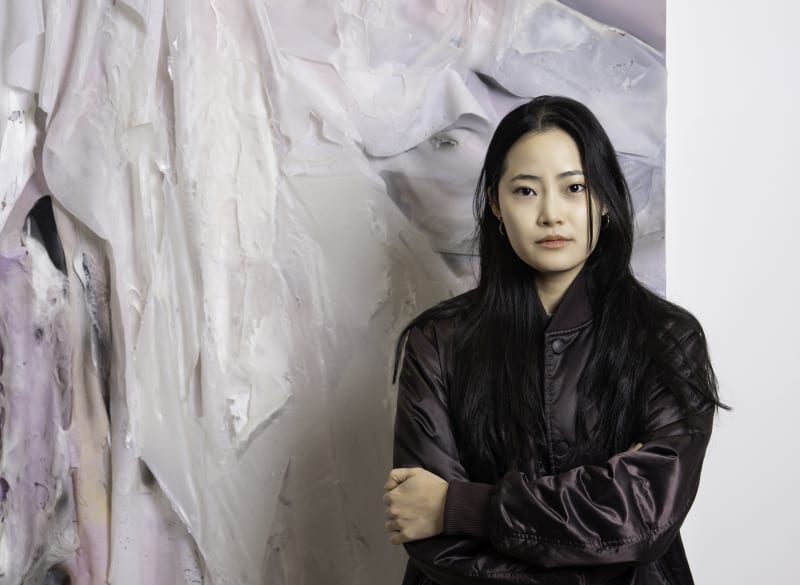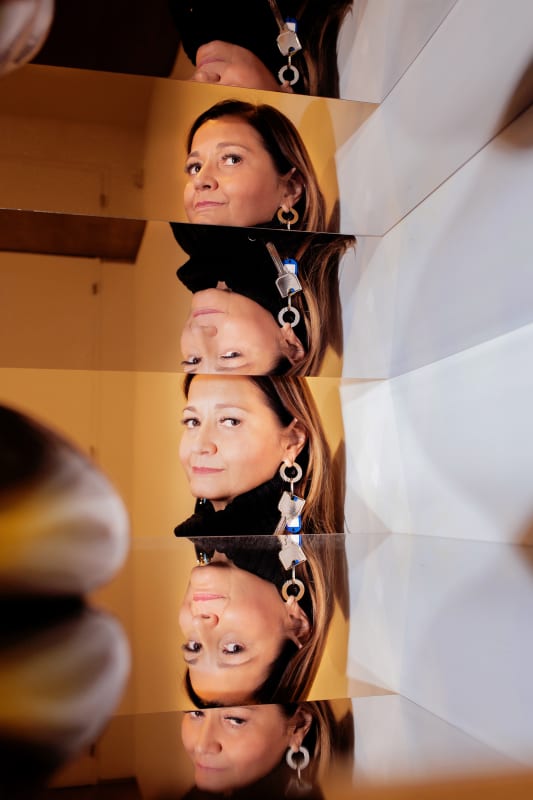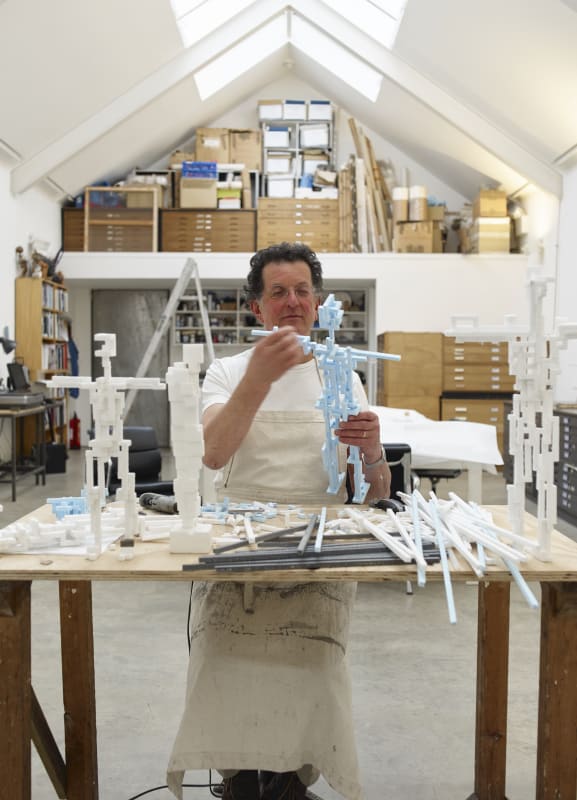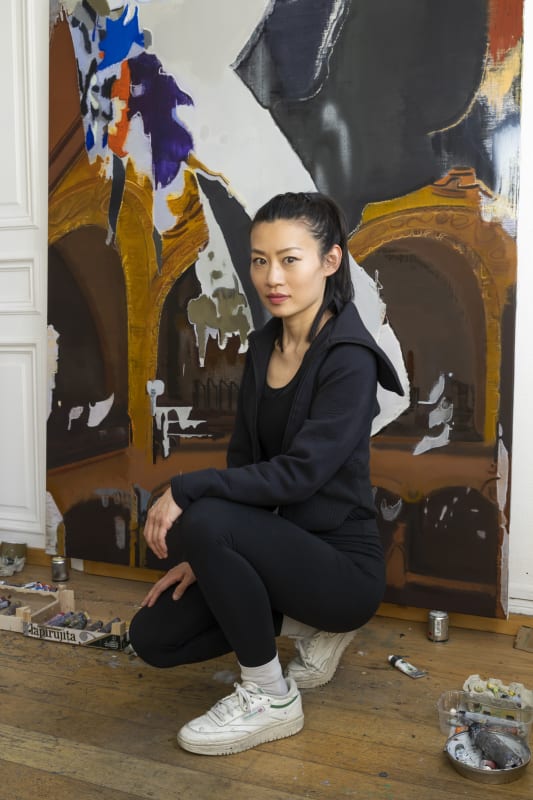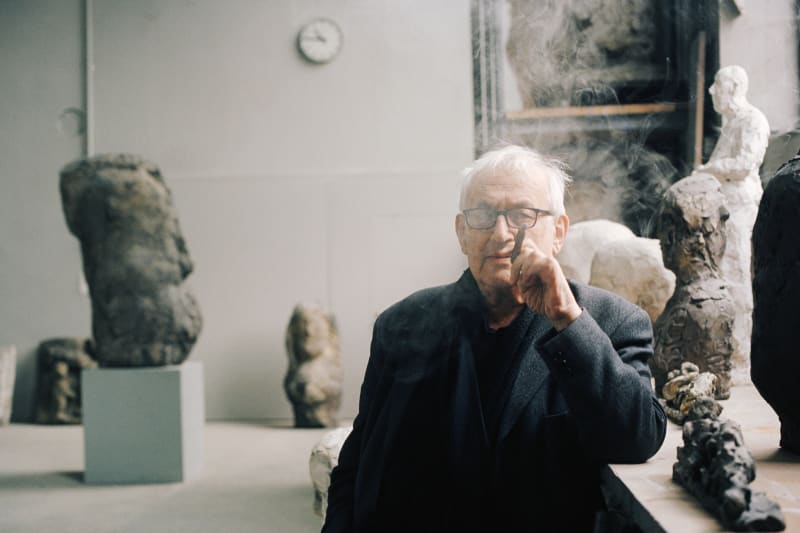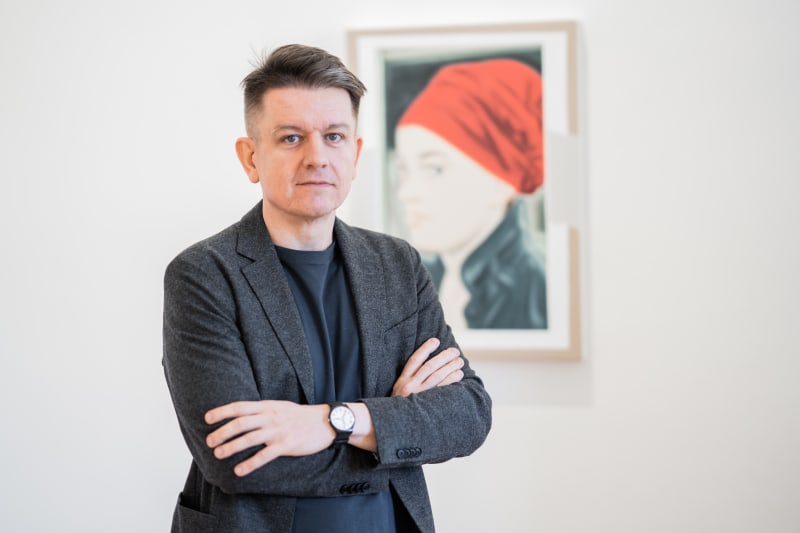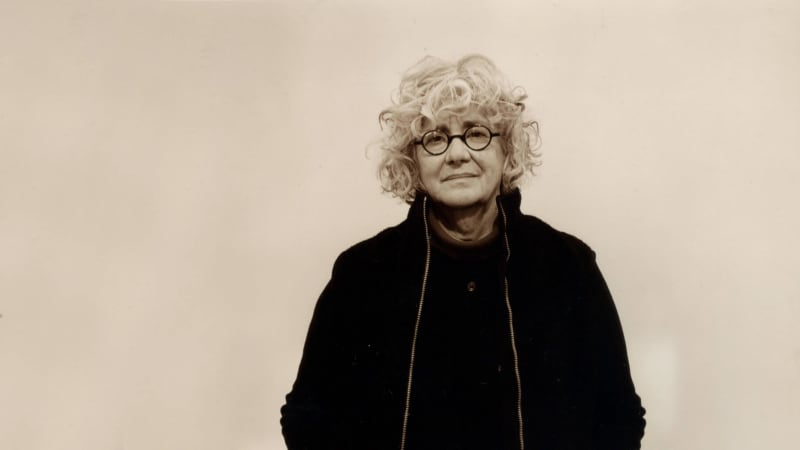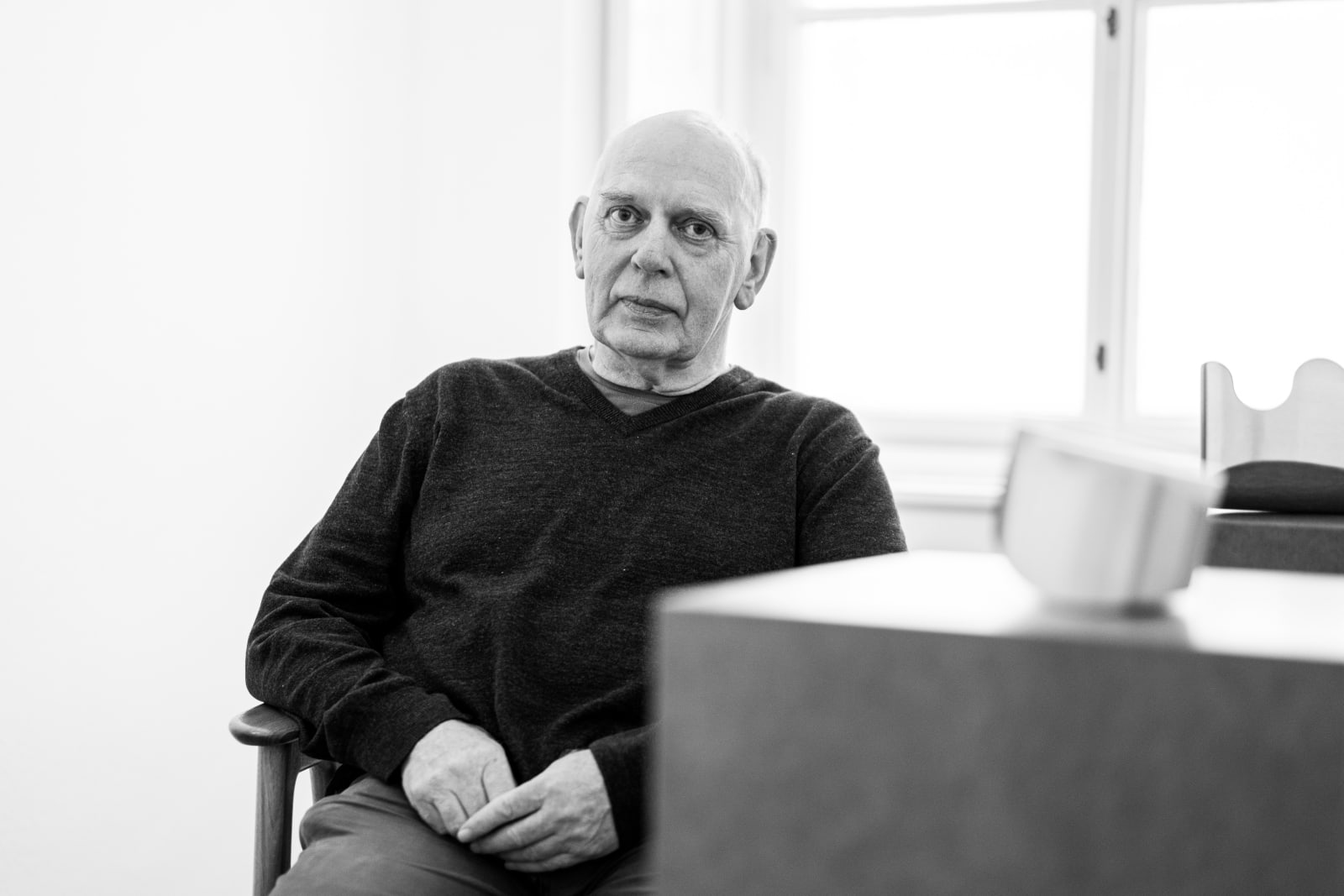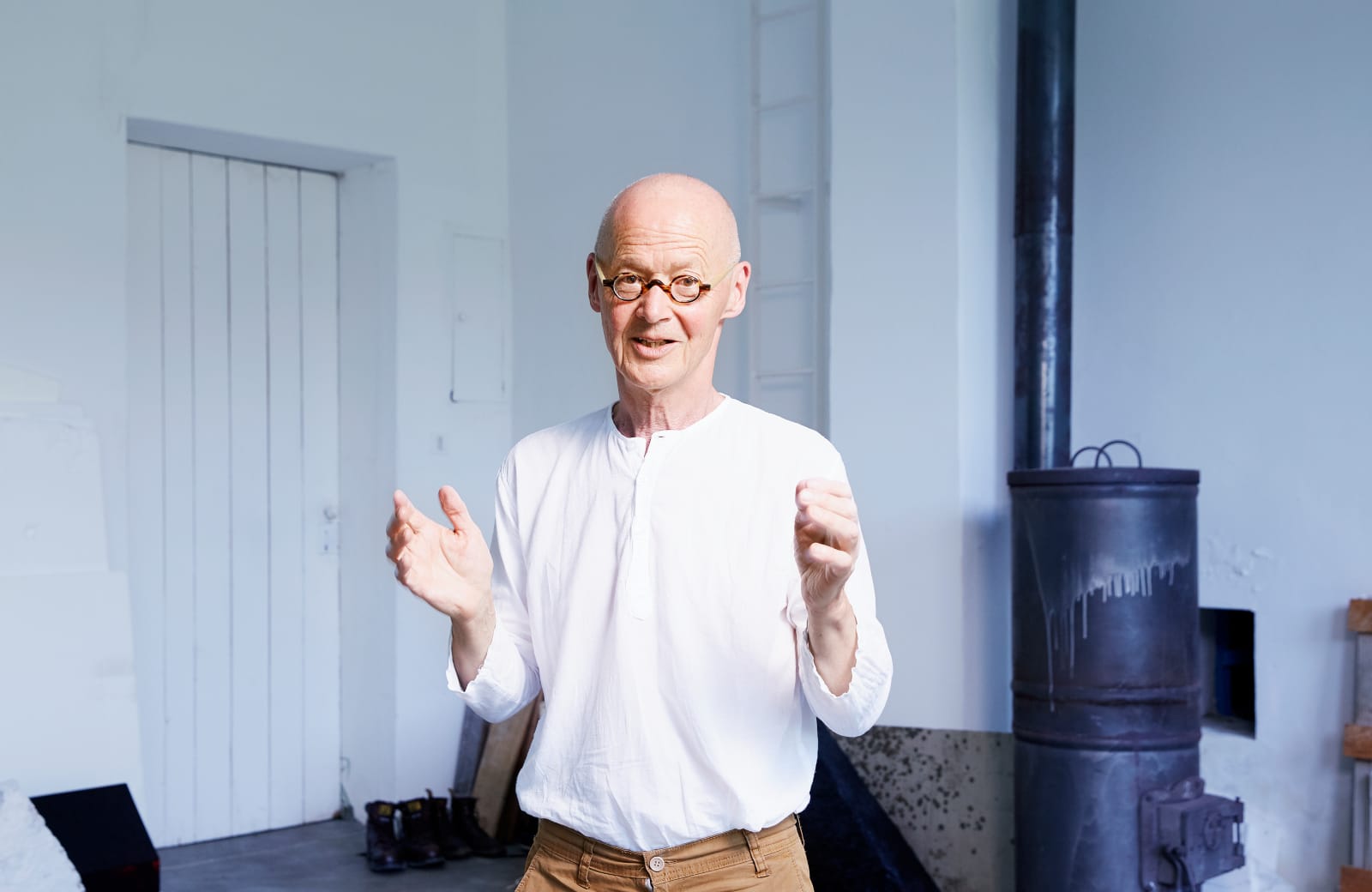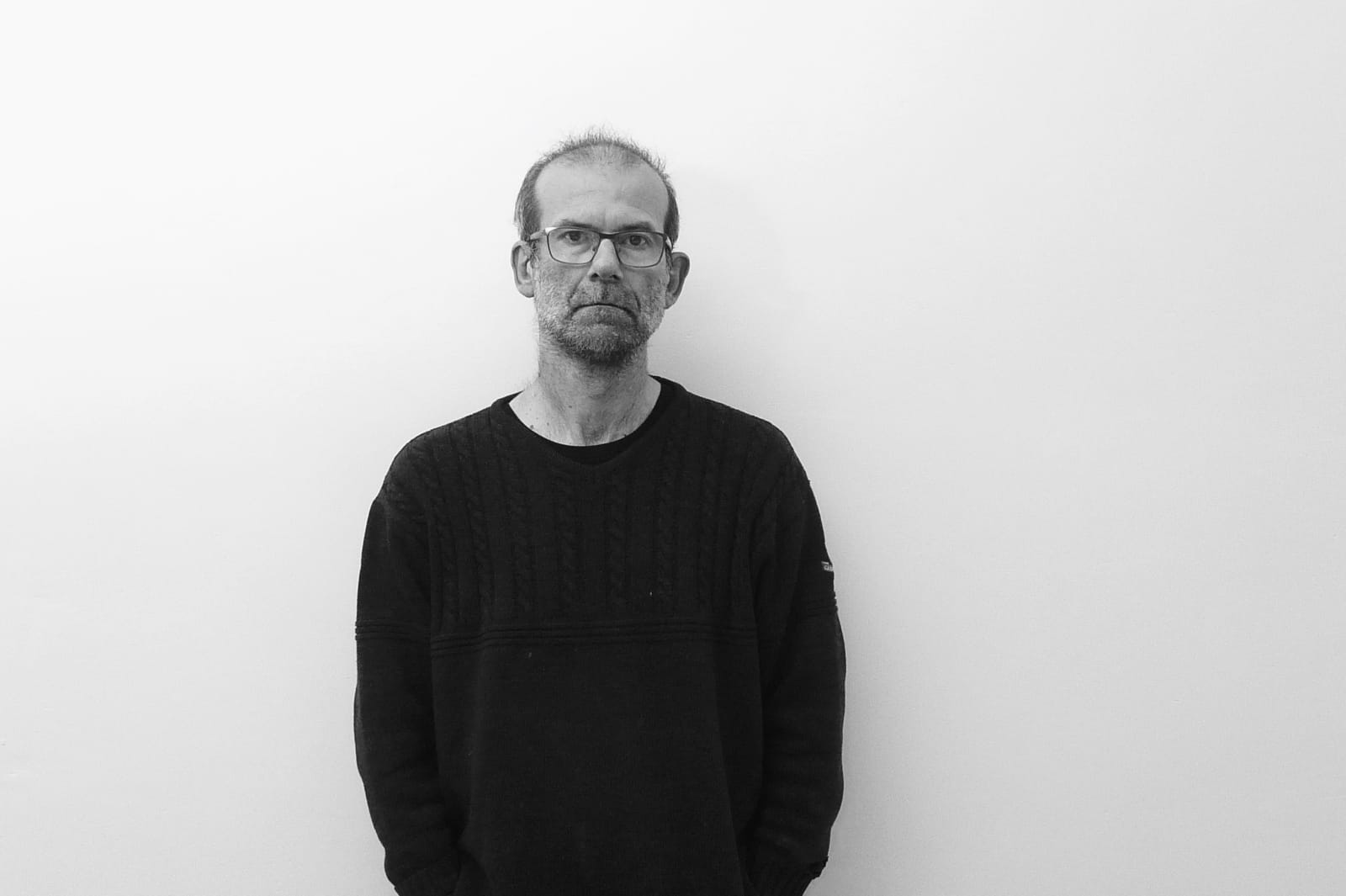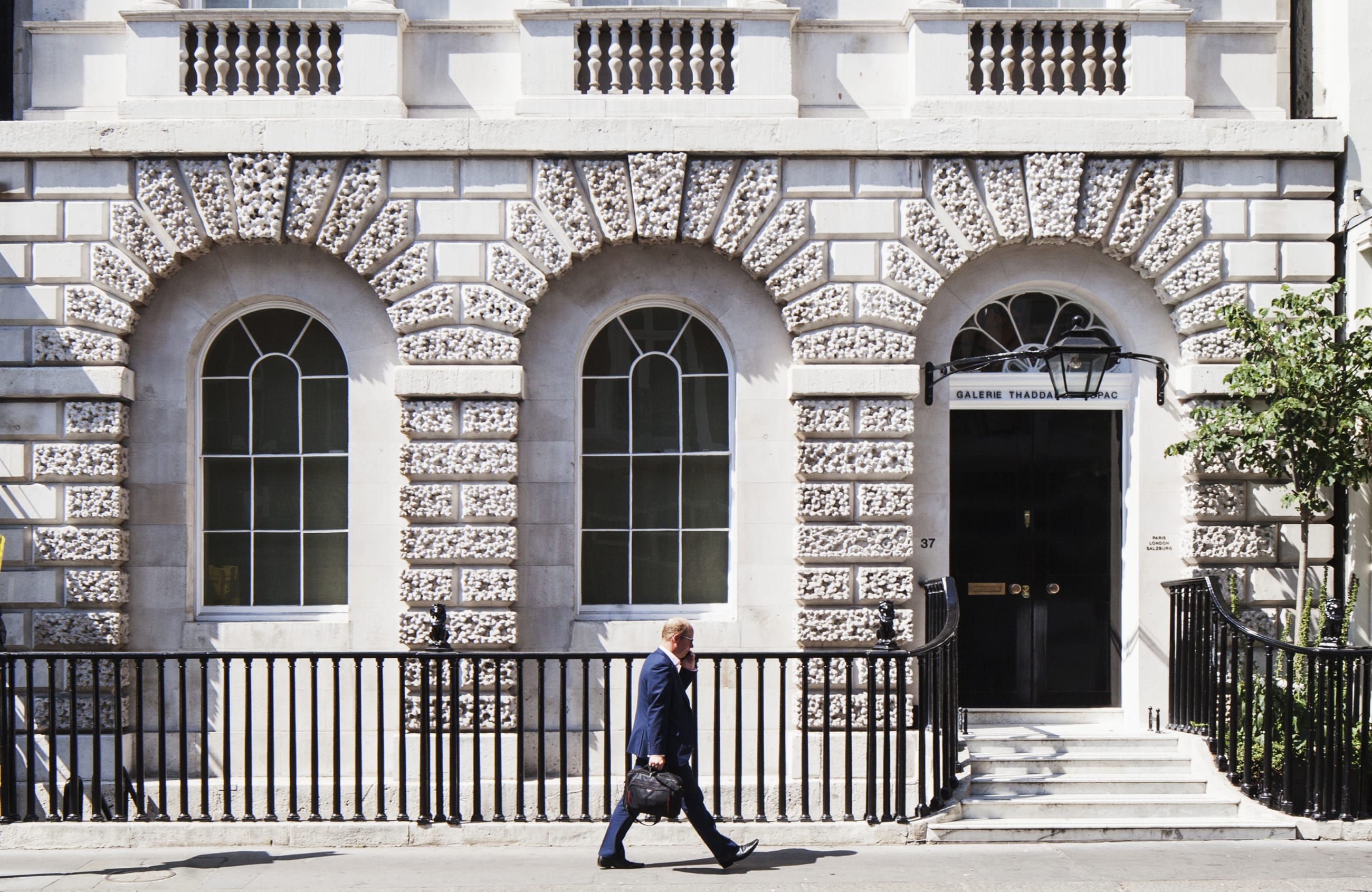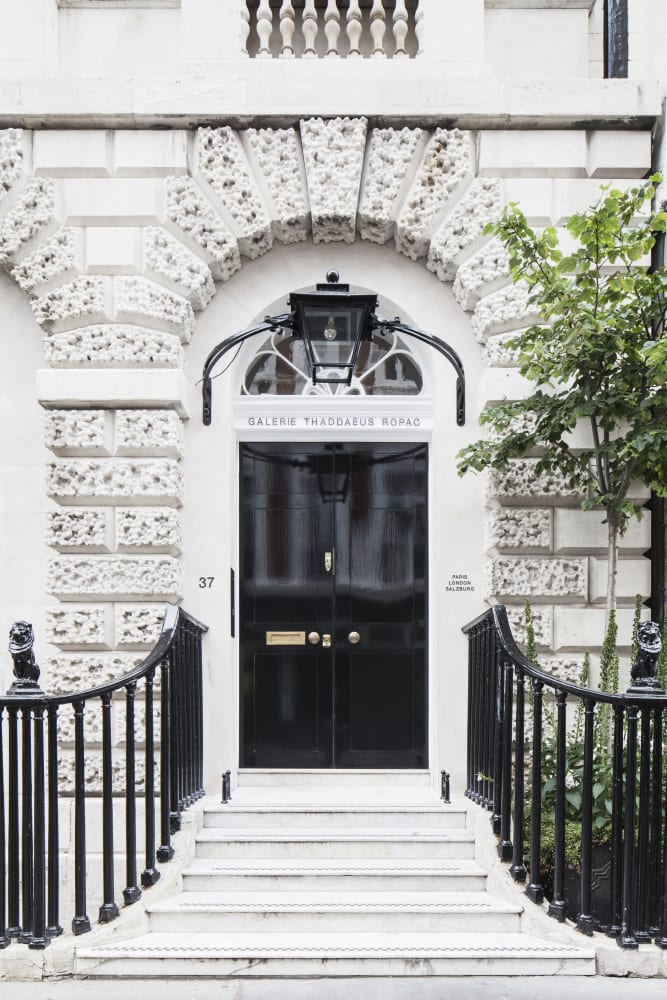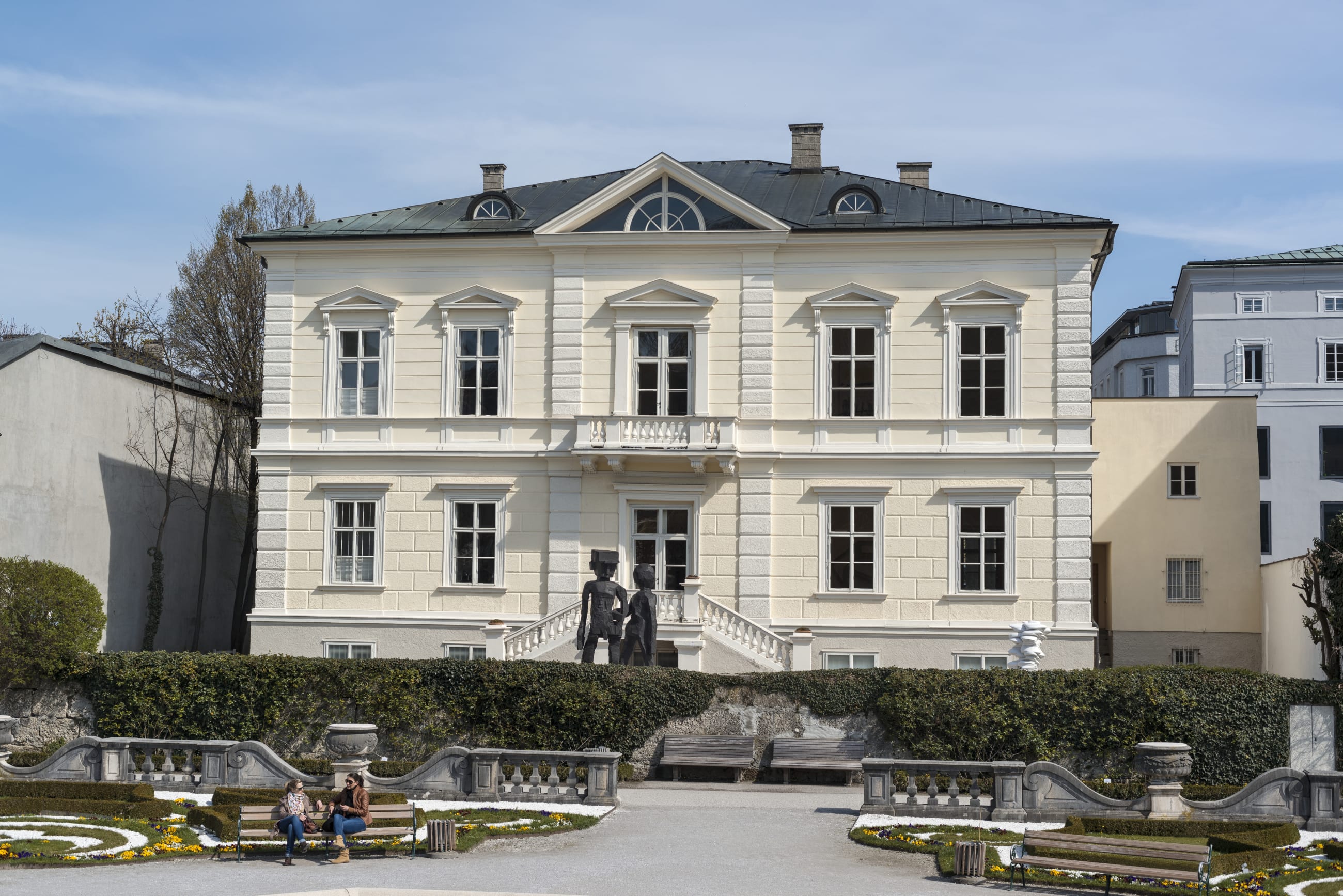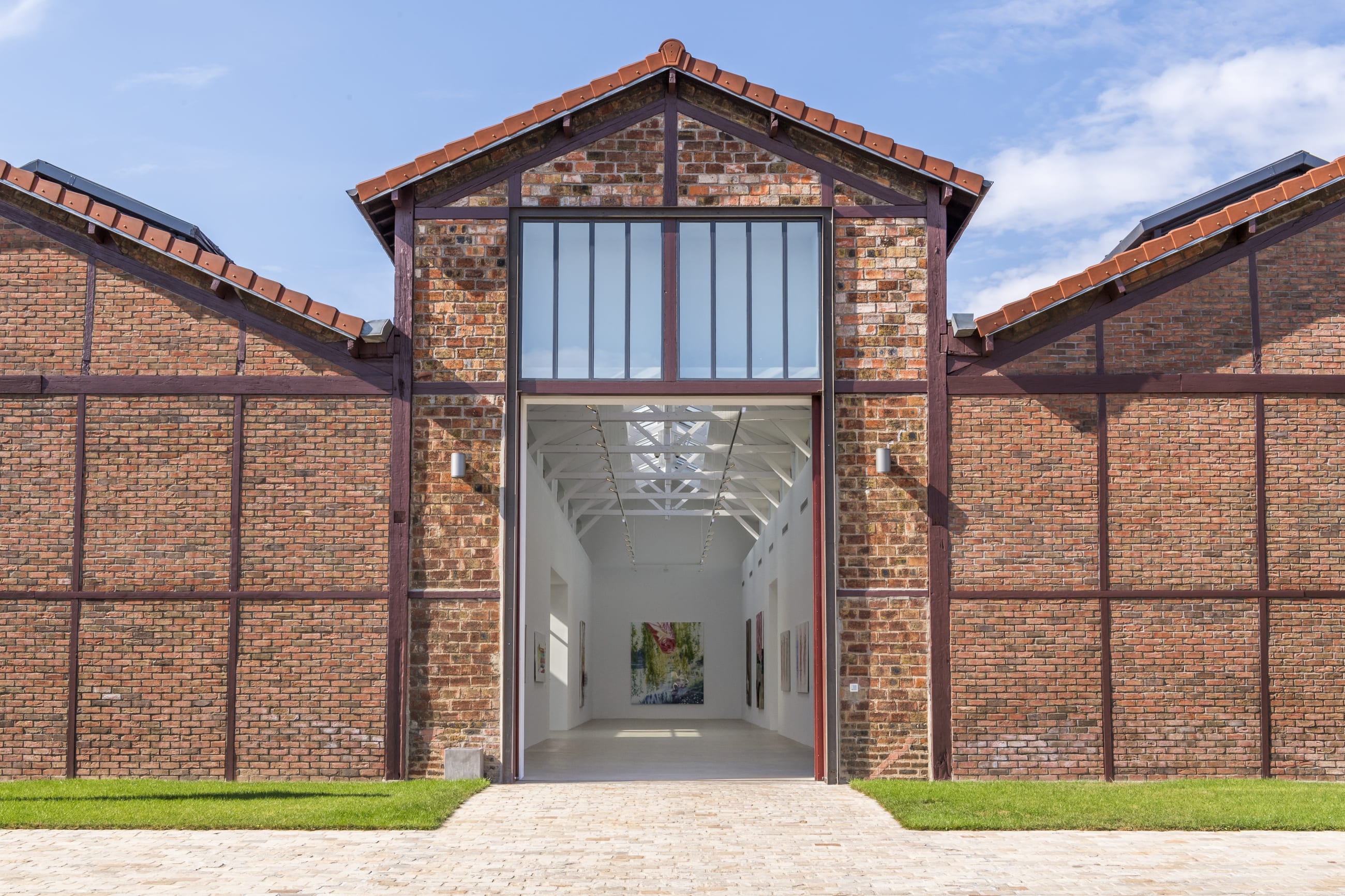
Oliver Beer Recomposition (Four Piano Keys), 2020
To create his ‘Two-Dimensional Sculptures’, Beer slices through objects with surgical precision, embedding the pieces in resin so that only their cut edges remain visible, set perfectly flush with the gesso surface. These objects are unravelled, losing all volume and functionality, and their elements re-unified within the pictorial plane. Using a technique unique to Beer’s practice, he transforms three dimensions into two, creating a ‘physical cubism’ in which multiple perspectives can be simultaneously perceived. As the artist notes, sound travels in straight lines directly through matter – as in ultrasound imaging – not stopping at the surface as light does, so these works allow us to perceive the world beyond its surface.
In Recomposition (Four Piano Keys), 2020, the white square opens on hinges to reveal a tilted inset square, each side of which is composed of a piano key extracted from the artist’s grandmother’s piano, which was also his childhood instrument. Born in 1913, Oma was prevented from studying music by her father, himself a violinist. She made her first composition at the age of 87, which – unable to transcribe herself – she communicated to her teenage grandson through a combination of singing and drawing. Without any musical training, Oma was never able to play this piano and, poignantly, this silencing of her music is represented metaphorically through the silencing of the piano keys. Embedded within the resin, the keys instead become two-dimensional images of themselves, no longer functional and by turns revealed or concealed behind the hinged doors. Anatomical in its scope, the square image shows the keys’ white and black veneers, as well as the felt pads, which begin the process of producing sound in the instrument. The internal hammers of the piano are also visible, retained in their three-dimensional form as the handles that open and close the piece.



Closed: 47 x 23 x 4 cm


